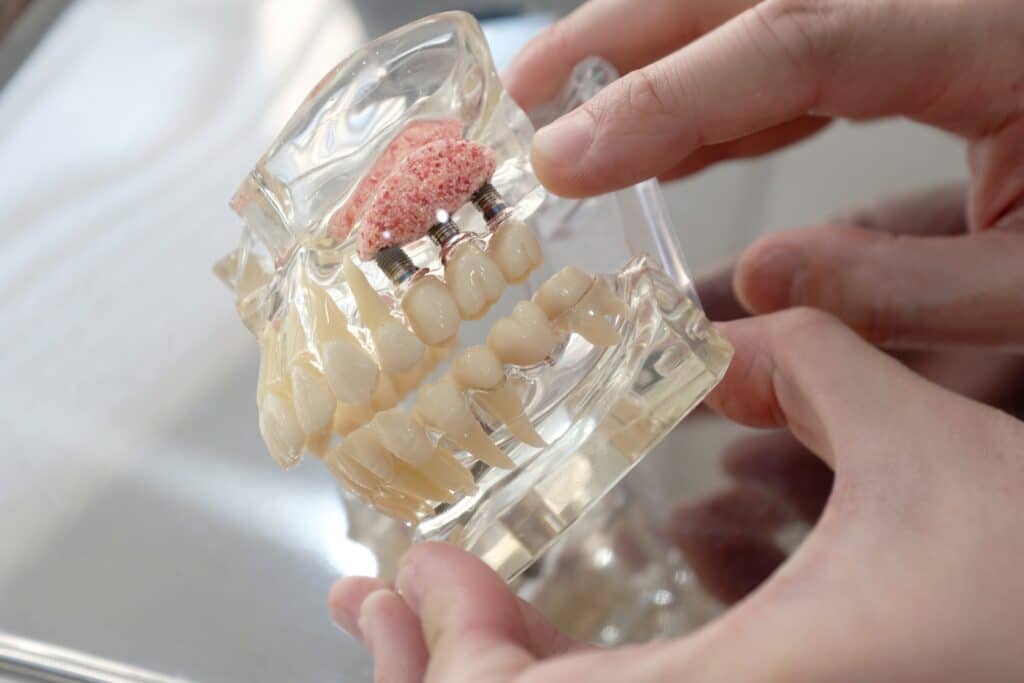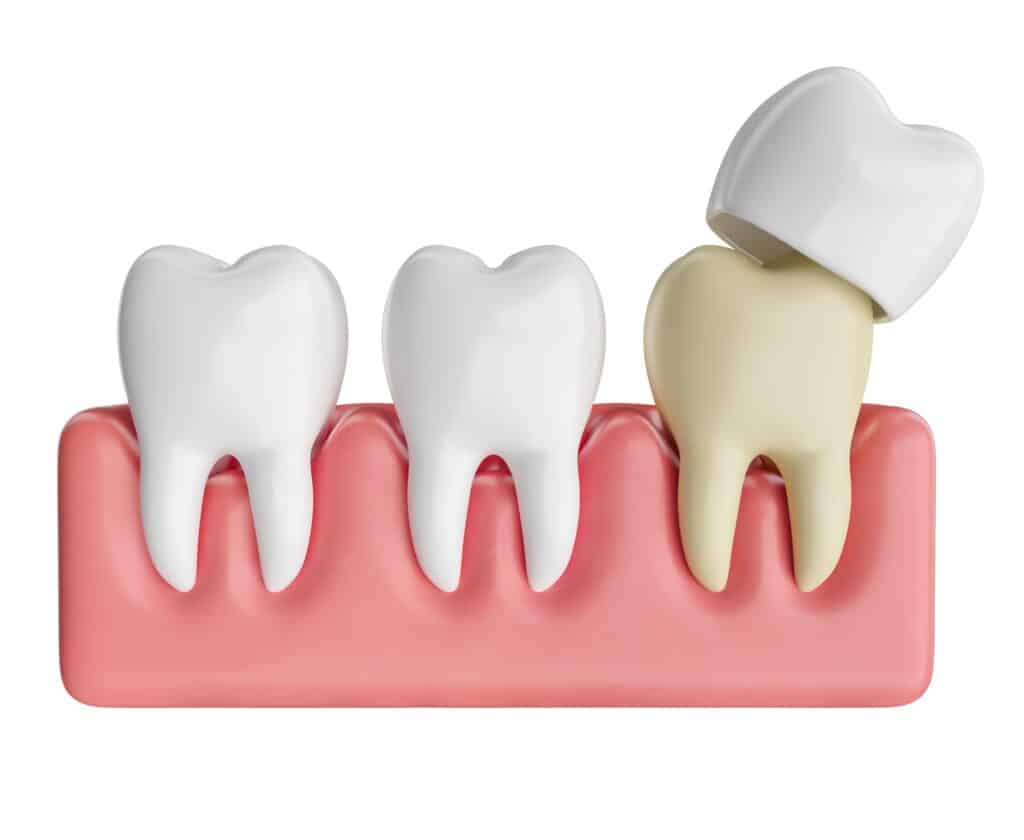Bleeding gums are a common problem worldwide, and have been one of the most frequent ailments to plague the oral cavity throughout history, even described in Ancient China as early as 2500 BC. There probably isn’t a single person in the world who has not noticed blood between their teeth at least once. Although this may sometimes happen when brushing your teeth or flossing, gums that bleed when you eat, or even “randomly”, can indicate gingivitis, which may have dire consequences.
Bleeding Gums: Concerns and Causes
Healthy gums normally cover the entire root of all your teeth and have a characteristic pink color. Inflamed gums may, in contrast, appear dark pink or red, and are soft, bloated, and increasingly tender. Unfortunately, people often ignore these warning signs, hoping the problem will resolve itself. Hint: It likely won’t, and you need to see a dentist.
What causes gums to bleed?
Teeth and gums are usually prone to bleeding when they are infected. A plaque buildup on the surface of the teeth, as a result of improper oral hygiene, is a common cause. Dental plaque is an organic matter that starts coating the teeth about two hours after brushing, and if not removed, it becomes soft sediment on the surface.
Ignoring the plaque leads to its hardening and discoloration, called tartar. Plaque and tartar act as a barrier, clogging the place where gums and teeth meet. Bacteria will soon start to multiply in this “ideal spot for microorganisms”, triggering an inflammatory response. Swelling and bleeding gums soon follow, and if not treated, it may spread to other structures of the cavity, causing further complications, like the periodontal disease that can cause teeth to loosen and even fall out.
Since plaque acts as a source of infection, the most effective way to prevent these complications is to maintain excellent oral health — meaning you should brush and floss properly.
However, if the point of no return is reached, your dentist will suggest plaque removal, or even antibiotics if the inflammation of the gums is severe. After this, it’s important to avoid irritating your gums further, so opt to use the super-soft bristle toothbrush your dentist will recommend.
Bleeding gums can be a sign of gum disease or other underlying problems
A number of women suffer from bleeding gums during puberty, PMS, pregnancy, menopause, or even when on contraceptive pills. This hormonal imbalance, characterized by higher production of hormones, leads to more blood flowing through the gums, making them swollen. This type of bleeding usually shouldn’t present an issue, but, along with proper dental care, you’re still advised to check in with your dentist.
Smoking is another often-overlooked risk factor because cigarettes don’t just negatively affect blood vessels in the immune system, smoking may also mask some of the signs of oral infection.
Certain diseases, such as AIDS, leukemia, or even diabetes, may cause increased bleeding. Bleeding gums can also be a side effect of some aggressive medication, like chemotherapy drugs or even OTC drugs such as aspirin, which has blood-thinning properties.
Nutritional deficiencies, a lack of vitamins C and K for instance, are yet another culprit to investigate if you’ve been suffering from bleeding gums. One way in which scurvy, caused by a vitamin C deficiency, manifests, is through bleeding gums and teeth falling out, since vitamin C is essential for the formation of connective tissue.
Gum Bleeding & Diseases
Some of these diseases can pose a serious health hazard that stretches far further than potential tooth loss. Therefore, if your gums are still bleeding after a visit to the dentist, you should talk to your doctor in order to find out what may be wrong.
In conclusion, gingivitis, or inflamed gums, can quickly lead to periodontal disease and tooth loss. Since the best way to prevent bleeding gums is brushing and flossing your teeth regularly and not smoking — steps everyone should be taking, really — preventing gum disease is much easier than curing it.
If there’s an underlying medical reason for your bleeding gum lines, which can’t be treated by a dentist, it is important to talk to your dentist as soon as possible, so that you can tackle not only your bleeding gums but also the culprit that saddled you with them.
Regency Family Dentistry Omaha | Best Omaha Dentist near Westroads Mall in Regency
Whether your teeth needs are a:
- complete exam and cleaning,
- full-mouth restoration
- or anything in between
We promise to provide you with exceptional care as we enhance the natural beauty of your smile. Below are just some of the many procedures and dental services we regularly provide to our patients – with a gentle touch, and stunning results. Your smile is our first priority, and we’ll give you something to smile about.
Preventative Dentistry
- Dental Exams
- Dental Cleanings
- Oral Cancer Exam
- Fluoride Treatment
- Sealants
- Dental X-Rays
- Home Care
- Nightguards & Mouthguards
Cosmetic Dentistry
- Dental Implants
- Composite Fillings
- Porcelain Crowns
- FixedPorcelain Bridges
- Porcelain Veneers
- Tooth Whitening
Periodontal Disease
- What is Periodontal (Gum) Disease?
- Diagnosis
- Treatment
- Maintenance
Restorative Dentistry
- Dental Implants
- Inlay Restorations
- Onlay Restorations
- Composite Fillings
- Crowns
- Dentures & Partial Dentures
- Fixed Bridges
- Root Canal Therapy
Oral Surgery
- Wisdom Teeth Extractions




